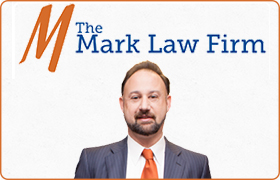West New York White Collar Crime Lawyer, New Jersey
Sponsored Law Firm
-
 x
x

Click For More Info:
-
Mark Law Firm
675 Morris Avenue, Suite 102 Springfield, New Jersey 07081 » view mapCar Accident Call Now For A Free Initial Consultation
Life changes drastically in the aftermath of a serious accident or injury. Emotional and financial ramifications can also be extensive.
800-736-9780  Jamison Mark Basking Ridge, NJ
Jamison Mark Basking Ridge, NJAttorney At Law - NJ, 2000
Widener University SOL, J.D. - 1999
 Overview
OverviewMark Law Firm is a full-service firm representing the interests of its clients.
 Testimonials
Testimonials"He is certainly one to go to the limit for his clients and his friends."
Ron Bar-Nadav
✓ VERIFIED *Status is reviewed annually. For latest information visit hereCriminal, Felony, DUI-DWI, White Collar Crime, State Appellate Practice
Bar-Nadav Law Offices is a legal service in Hackensack, NJ specializing in criminal law cases. With years of experience in NJ criminal law, we’re co... (more)
William R. Lundsten
Litigation, White Collar Crime, Criminal, Corporate
Status: In Good Standing *Status is reviewed annually. For latest information visit here Licensed: 49 Years
Hervé Gouraige
Litigation, Health Care Other, White Collar Crime, Corporate
Status: In Good Standing *Status is reviewed annually. For latest information visit here
Michael Deblis
International Tax, White Collar Crime, DUI-DWI, Criminal
Status: In Good Standing *Status is reviewed annually. For latest information visit here
Francis S. Gruber
Civil Rights, White Collar Crime, Arbitration, Business
Status: In Good Standing *Status is reviewed annually. For latest information visit here


